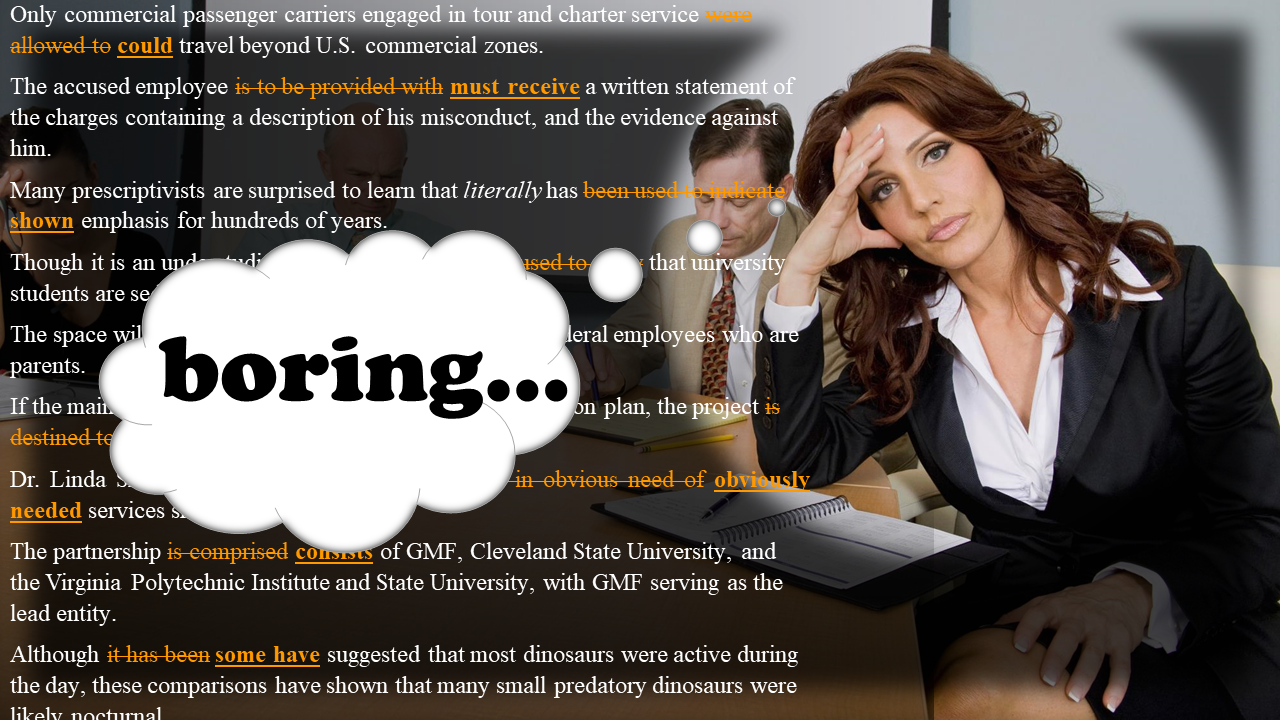To tighten each sentence, search for redundant words where the meaning could be clearly expressed with a single word. Most writers know to eliminate doublets and triplets, but overlook other redundancies in:
- word pairs or groups where the meaning of a word implies or includes its modifier
- word pairs or groups where the specific word implies the general category
- throw-away phrases that describe the writer’s intentions, give directions to the reader, or describe the structure of the text













